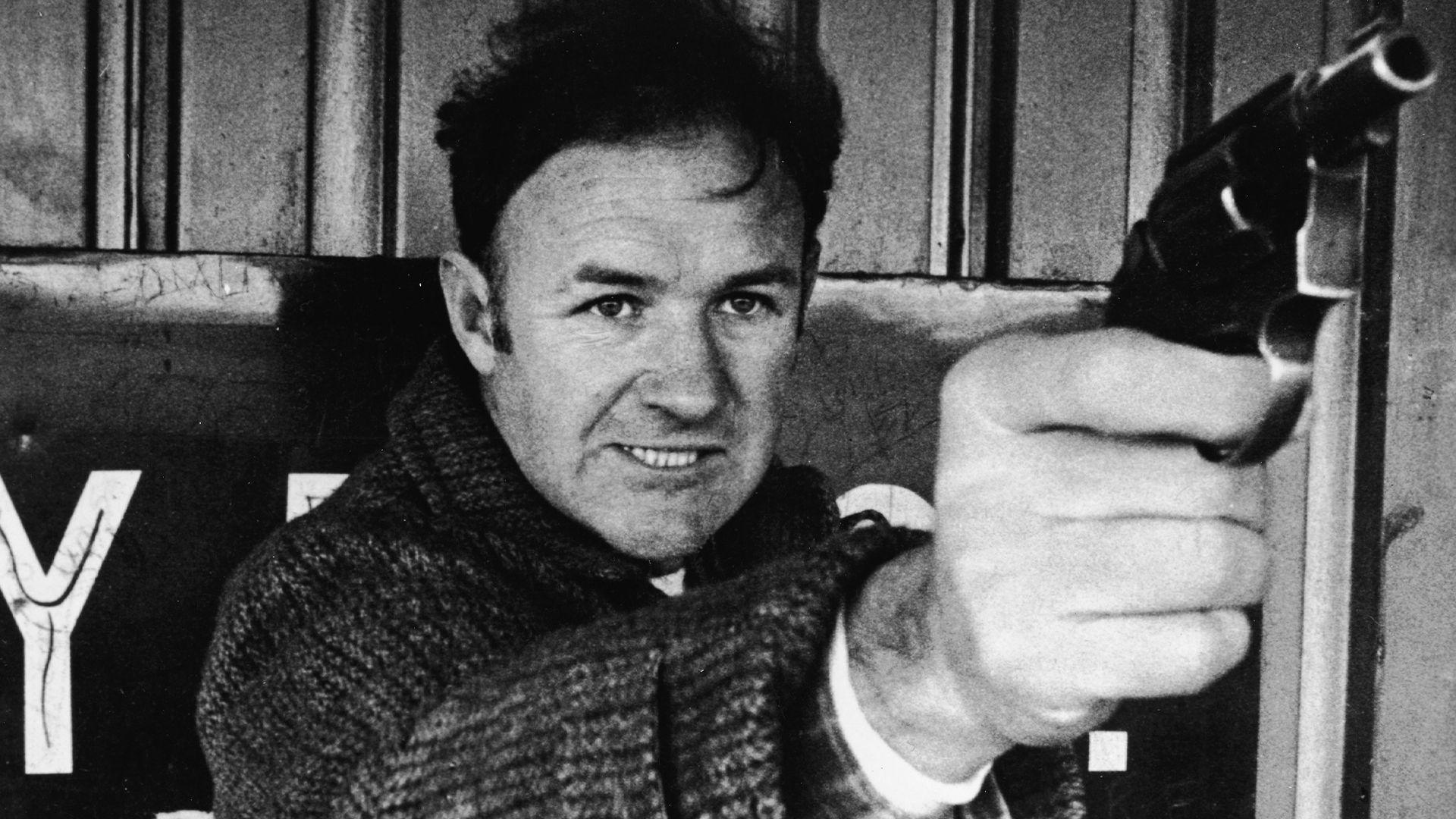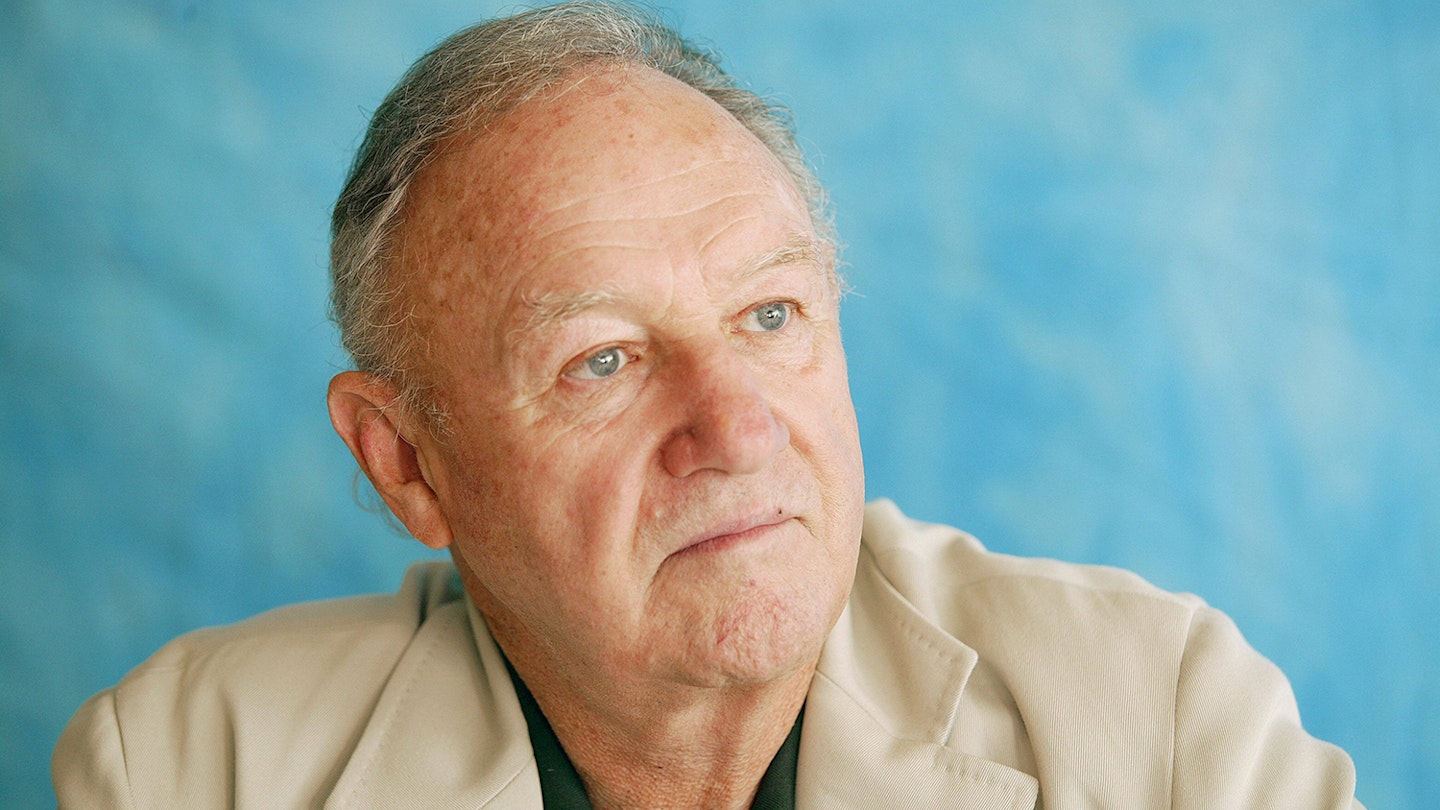
Gene Hackman, the esteemed actor whose indelible portrayals ranged from gritty lawmen to charming villains, and who earned two Academy Awards during a distinguished 40-year career, has died at his home in New Mexico. He was 95. The announcement yesterday afternoon from the Santa Fe sheriff’s office marked the passing of a cinematic giant whose presence on screen was defined by its remarkable believability and understated power, captivating audiences in films that span several decades and genres. While initially reported as an investigation into the cause of death for both Mr. Hackman and his wife, Betsy Arakawa, authorities had indicated no suspicion of foul play.
The news of Mr. Hackman’s death, along with that of his wife, Betsy Arakawa, 65, and their dog, at their Santa Fe residence, has resonated deeply within the film community and among his admirers worldwide. The Santa Fe County Sheriff’s Department had stated that the cause of death was unclear and under investigation, a common procedure in such circumstances. However, in an update on March 7, New Mexico’s chief medical examiner later provided clarity, stating that Mr. Hackman had died from heart disease, with Alzheimer’s disease contributing to his passing, likely a week after Ms. Arakawa succumbed to the effects of hantavirus, a rare, rodent-linked illness. This somber coda to a celebrated life further emphasizes the quiet, dignified end to an artist who so often explored the complexities of life on screen.
Mr. Hackman’s passing closes a chapter on one of Hollywood’s most compelling figures, an actor who, as critics often noted, never quite fit the conventional mold of a movie star yet became one through sheer talent and an uncanny ability to inhabit a role. His characters, whether heroic or morally ambiguous, resonated with an authenticity that transcended the screen. He leaves behind a legacy of performances that are not merely remembered but felt, a testament to his unique artistry and profound impact on the landscape of American cinema. The tributes pouring in from colleagues underscore the deep respect and admiration he commanded throughout his career.
:max_bytes(150000):strip_icc():focal(828x355:830x357)/gene-hackman-betsy-arakawa-march-2024-022725-bc78e1364371430f8a5a4f024cb22b42.jpg)
1. **The Announcement of His Passing and Initial Details**The venerable actor Gene Hackman, a two-time Oscar winner, passed away at the age of 95 at his home in New Mexico. The Santa Fe sheriff’s office confirmed his death, reporting that he was found yesterday afternoon alongside his wife, Betsy Arakawa, and their dog. This news sent a ripple through the entertainment world, mourning the loss of a figure whose influence on film was profound and far-reaching.
Initially, the Santa Fe County Sheriff’s Department stated that the cause of death was unclear and under investigation, though they added that foul play was not suspected. The circumstances surrounding the discovery of the bodies of Mr. Hackman, his wife, and their pet were considered “suspicious enough in nature to require a thorough search and investigation,” according to a search warrant mentioned in one report.
Further clarity emerged on March 7, when New Mexico’s chief medical examiner released additional details. It was reported that Mr. Hackman had died from heart disease, with Alzheimer’s disease listed as a contributing factor. His death, indicated by his implanted pacemaker, occurred eight days before his body was discovered. Tragically, it was also determined that his wife, Betsy Arakawa, 65, had died from the effects of hantavirus, a rare disease linked to rodents that can cause respiratory failure, most likely a week prior to Mr. Hackman’s passing. This update brought a somber, conclusive understanding to the initial reports of their deaths.
:max_bytes(150000):strip_icc():focal(749x0:751x2)/gene-hackman-022725-2-5defd18f026b45aa9fdda1bd0ee42052.jpg)
2. **A Life Defined by Nuance and Intensity**Gene Hackman was a performer whose very name became synonymous with a specific brand of authentic, unvarnished acting. Often characterized as Hollywood’s “perfect Everyman,” his nuanced portrayals defied easy categorization, showcasing a remarkable ability to peel back the layers from characters who carried the weight of middle age. He eschewed the flashy glamour often associated with leading men, opting instead for a grounded realism that made his presence on screen undeniably vital and real.
His career, spanning four decades and nearly 80 films, was marked by an extraordinary versatility. Mr. Hackman excelled at playing what NPR’s Neda Ulaby described as “complicated men, many of them not very nice.” Yet, even in roles where he embodied menace or cruelty, there was always a depth that hinted at the complex human underneath. Jeremy McCarter, in a 2010 appraisal, noted that Hackman had made the “moral gray zone” his home for so long that audiences had ceased to notice it, understanding that in his performances, “the good guys aren’t always nice guys, and the villains have charm.”
What truly set Mr. Hackman apart, and what critics most often cited, was his sheer believability. He seemed to live his roles rather than merely play them, disappearing into each character with such conviction that the distinction between actor and role blurred. Janet Maslin of The New York Times encapsulated this perfectly in 1988, writing, “There’s no identifiable quality that makes Mr. Hackman stand out. He simply makes himself outstandingly vital and real.” This commitment to raw, unadulterated performance became the hallmark of his esteemed career, ensuring his place as one of cinema’s most respected and impactful actors.
:max_bytes(150000):strip_icc():focal(749x0:751x2)/gene-hackman-tout-a7d349146f5641408d011c5c2137a60b.jpg)
3. **Early Life and Formative Experiences**Born Eugene Allen Hackman on January 30, 1930, in San Bernardino, California, his early life was shaped by itinerancy and significant familial shifts. His father, also named Eugene, worked as a pressman for a local newspaper, leading the family to move frequently across the country before finally settling in Danville, Illinois. This period of his youth was marked by a pivotal and deeply impactful event that Hackman would later recall as a formative moment in his life and career.
When he was just 13 years old, his father abandoned the family. Mr. Hackman recounted that his father drove away while he was playing in the street, offering no more than a slight wave of the hand as he passed by. This seemingly small gesture left an indelible mark on young Gene. “I hadn’t realized how much one small gesture can mean,” he once said, reflecting on the incident, adding, “Maybe that’s why I became an actor.” This profound realization about the power of subtle human behavior would later inform his nuanced acting style, allowing him to convey deep emotion with understated gestures.
At 16, and after some trouble with the law that included a night in jail for shoplifting candy and soda, Hackman talked his way into the Marine Corps, lying about his age to enlist in 1946. He served for four and a half years, with tours in China, Hawaii, and Japan, during which he gained his first taste of showbiz as a disc jockey for his unit’s radio station. Following his discharge, he briefly pursued journalism at the University of Illinois and later studied television production in New York, then worked radio jobs in the Midwest, before ultimately deciding to pursue acting at the relatively late age of 30, a testament to his resilient and determined spirit.

4. **The Pasadena Playhouse and the Road to Stardom**Gene Hackman’s journey into the world of acting was not an immediate triumph; rather, it was a path paved with struggles, rejections, and serendipitous friendships. After his time in the Marines and dabbling in journalism and radio, he decided to commit to acting, enrolling in classes at the prestigious Pasadena Playhouse in California. It was there that he met a fellow aspiring actor, a “short kid with a big nose” named Dustin Hoffman, with whom he would forge a lifelong friendship.
Ironically, both Hackman and Hoffman were infamously voted “least likely to succeed” by their classmates at the Pasadena Playhouse, a judgment that history would spectacularly refute. Undeterred by this early dismissal, they moved to New York in 1957, determined to break into the competitive world of theater and film. Their early years in New York were characterized by the classic actor’s struggle, marked by financial hardship and a relentless pursuit of work.
To make ends meet, Hackman took on a variety of odd jobs, including driving a truck, jerking sodas, and selling shoes, enduring the grind while honing his craft. During this period, he and Hoffman even roomed with a certified public accountant who would also become a renowned actor, Peter Falk, and often palled around with Robert Duvall. This early cohort of struggling, talented actors, who would all go on to become Hollywood legends, shared a bond forged in mutual ambition and the lean years of trying to make it, laying the groundwork for some of the most respected careers in cinema history.

5. **Broadway Success and Early Film Recognition**Mr. Hackman’s persistence eventually began to yield results, first on the stage and then in television. He landed his inaugural stage role in an Off Broadway production of “Chaparral” in 1958, gradually building his experience. His television appearances included roles in popular shows like “Route 66,” “The Defenders,” and “Naked City,” showcasing his developing range and presence to a wider audience. However, it was his work on Broadway that truly cemented his early reputation as a formidable talent.
His role in “Any Wednesday,” a Broadway comedy with Sandy Dennis, marked a significant turning point. This was his third Broadway play, but critically, it was the first to achieve lasting success, running for an extended period. Critics applauded his performance, which saw him play a young man from Ohio who falls in love with a tycoon’s mistress. The play’s hit status meant that Mr. Hackman, as he famously quipped, “never had to sell another pair of shoes,” marking the end of his days of odd jobs and the true beginning of his professional acting career.
The momentum from Broadway quickly translated to film. His bit part as Jessica Walter’s crass husband in Warren Beatty’s 1964 psychological drama “Lilith” made a lasting impression on Beatty. This connection proved crucial when Beatty was producing “Bonnie and Clyde” and sought an actor to portray Buck Barrow, the explosive brother of Clyde Barrow. Mr. Hackman’s performance in Arthur Penn’s seminal 1967 film earned him his first Academy Award nomination for Best Supporting Actor, propelling him into the national spotlight and cementing his status as a rising star.

6. **Breakthrough Role: Popeye Doyle in ‘The French Connection’**Gene Hackman’s career reached an undeniable crescendo with his iconic portrayal of Detective Jimmy “Popeye” Doyle in William Friedkin’s 1971 hit film, “The French Connection.” This role became his breakout, forever associating him with the image of a crude, relentless narcotics cop – a grim-faced bloodhound in a porkpie hat, navigating the grimy streets of New York City with an unwavering, almost obsessive, drive. It was a performance that distinguished him as a leading man of formidable power and intensity.
His immersion into the character was so profound that it earned him his first Academy Award for Best Actor. The film itself was based on Robin Moore’s 1969 nonfiction book, which chronicled the efforts of narcotics detectives Eddie Egan and Sonny Grosso to dismantle a significant drug smuggling ring. Friedkin’s documentary-style direction, combined with Hackman’s searing, hyper-focused turn, made for a cinematic experience that was both thrilling and unflinchingly real. Interestingly, Friedkin’s first choice for the role had been Jackie Gleason, highlighting how Hackman ultimately made the part his own in an unforgettable way.
In his Oscar acceptance speech, Mr. Hackman specifically acknowledged director William Friedkin, stating, “Mr. Billy Friedkin, who has already received his prize tonight, but I have to thank him because he really brought me through this when I wanted to quit.” This candid admission underscored the challenging nature of the role and the intensity required to embody Popeye Doyle, a character so complex and at times unlikable, yet rendered utterly compelling by Hackman’s performance. The role solidified his reputation for delving deep into the darker, more ambiguous aspects of human nature.




